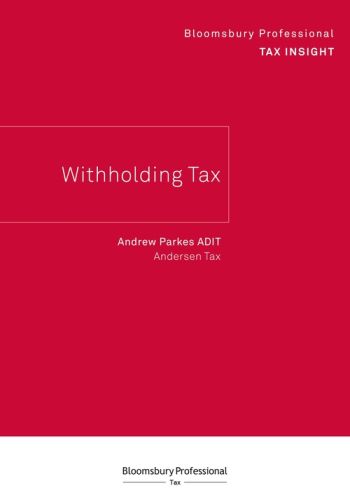
UK withholding tax is a method of collecting tax at source from the person who makes a payment instead of raising an assessment on the recipient. It is is an effective way for tax authorities (HMRC) to collect tax. It passes the administrative burden onto the person making the payment (the payer) to:
As a general rule, UK domestic law requires companies making payments of interest to withhold tax at 20%. Withholding tax is an income tax that often affects companies. It doesn't fit neatly into publications aimed at income tax, where corporation tax practitioners may miss it, or corporation tax, as it is strictly income tax and has relevance for individuals.
Covers the following issues:
The guidance is illustrated by the use of diagrams and flow charts and case studies. Relevant case summaries are referenced throughout.